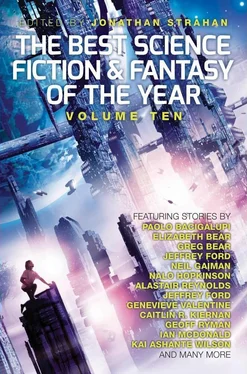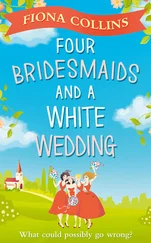“But think how marvelous it must have looked,” Yew said to me once, lying on my bed surrounded by books like a ribbonmark. “All the banners flying, and the sun on their swords, and the horses with armor so fine even a beast would be proud. Think of the drums and the trumpets and the cries in the dawn.”
“I do think of all that, and it sounds ghastly. At least now, everyone gets a good meal out of the business. It’s no braver or wiser or stranger to gather a thousand friends and meet another thousand in a field and whack on each other with knives all day. And there are still banners. My father’s banners are beautiful. They have a manticore on them, in a ring of oleander. I’ll show you someday.”
But Yew already knew what my father’s banners looked like. She stamped our manticore onto a bezoar for me the day we parted. The clay of the Floregilium mixed with a hundred spices and passed through the gullet of a lion. At least, she said it was a lion.
Soon it will be time to send Dittany and Mayapple. Passiflora will return there when the war is done – she would not miss a chance for practical experience.
Lord Calabar came to the Floregilium when I was a maid of seventeen. Yew’s husband came not long after, from far-off Mithridatium, so that the world could be certain we would never see each other again. They came through the Horn Gate, a passage of unicorn horns braided as elegantly as if they were the strands of a girl’s hair. He was entitled by his blood to any wife he could convince – lesser nobles may only meet the diffident students, the competent but uninspired, the gentle and the kind who might have enough knowledge to fight, but a weak stomach. They always look so startled when they come a-briding. They come from their castles and holdfasts imagining fierce-jawed maidens with eyes that flash like mercury and hair like rivers of blood, girls like the flowers they boiled into noble deaths, tall and bright and fatal. And they find us wearing leather gloves with stiff cuffs at the elbows, boots to the thigh, and masks of hide and copper and glass that turn our faces into those of wyrms and deepwater fish. But how else to survive in a place where the walls are built of venom, the river longs to kill, and any idle perfume might end a schoolgirl’s joke before the punchline? To me those masks are still more lovely than anything a queen might make of rouge and charcoal. I will admit that when I feel afraid, I take mine from beneath my bed and wear it until my heart is whole.
I suppose I always knew someone would come into the vicious garden of my happiness and drag me away from it. What did I learn the uses of mandrake for if not to marry, to fight, to win? I did not want him. He was handsome enough, I suppose. His waist tapered nicely; his shoulders did not slump. His grandfathers had never lost their hair even on their deathbeds. But I was sufficient. I and Floregilium and the manchineel tree and my Yew swimming in the river as though nothing could hurt her, because nothing could. He said I could call him Henry. I showed him my face.
“Mummy, the unicorns are miserable today,” Dittany frowns, and my memory bursts into a rain of green flowers.
I have never liked unicorns. I have met wolves with better dispositions. I have seen paintings of them from nations where they do not thrive – tall, pale, sorrowfully noble creatures holding the wisdom of eternity as a bit in their muzzles. I understand the desire to make them so. I, too, like things to match. If something is useful, it ought to be beautiful. And yet, the world persists.
Unicorns mill around my daughter’s legs, snorting and snuffling at her hands, certain she has brought them the half-rotted meat and flat beer they love best. Unicorns are the size of boars, round of belly and stubby of leg, covered in long, curly grey fur that matts viciously in the damp and smells of wet books. Their long, canny faces are something like horses, yes, but also something like dogs, and their teeth have something of the shark about them. And in the center, that short, gnarled nub of bone, as pure and white as the soul of a saint. Dittany opens her sack and tosses out greying lamb rinds, half-hardened cow’s ears. She pours out leftover porter into their trough. The beasts gurgle and trill with delight, gobbling their treasure, snapping at each other to establish and reinforce their shaggy social order, the unicorn king and his several queens and their kingdom of offal.
“Why do they do it?” Dittany frowns. “Why do they shovel in all that food when they know they could die?”
A unicorn looks up at me with red, rheumy eyes and wheezes. “Why did men go running into battle once upon a time, when they knew they might die? They believe their shield is stronger than the other fellow’s sword. They believe their Horn is stronger than the other fellow’s Lily. They believe that when they put their charmed knives into the pies, they will shiver and turn red and take all the poison into the blade. They believe their toadstones have the might of gods.”
“But nobody is stronger than you, are they, Mum?”
“Nobody, my darling.”
He said I could call him Henry. He courted me with a shaker of powdered sapphires from a city where elephants are as common as cats. A dash of blue like so much salt would make any seething feast wholesome again. Well, unless some clever Lily has used moonseeds, or orellanine, or unicorn milk, or the venom of a certain frog who lives in the library and is called Phillip. Besides, emerald is better than sapphire. But I let him think his jewels could buy life from death’s hand. It is a nice thing to think. Like those beautiful unicorns glowing softly in silver thread.
I watch my daughter pull at the udders of our unicorns, squeezing their sweaty milk into a steel pail, for it would sizzle through wood or even bronze as easily as rain through leaves. She is deft and clever with her hands, my frowning girl, the mares barely complain. When I milk them, they bite and howl. The dun sky opens up into bands like pale ribs, showing a golden heart beating away at dusk. Henry Calabar kisses me when I am seventeen and swears my lips are poison from which he will never recover, and his daughter feeds a unicorn a marrow bone, and his son calls down from the ramparts that the king is coming, he is coming, hurry, hurry, and under all this I see only Yew, stealing into my room on that last night in the country of being young, drawing me a bath in the great copper tub, a bath swirling with emerald dust, with green and shimmer. We climbed in, dunking our heads, covering each other with the strangely milky smell of emeralds, clotting our black hair with glittering sand. Yew took my hand and we ran out together into the night, through the quiet streets of the Floregilium, under the bridges and over the water until we came to the manchineel tree in the north orchards, and she held me tight to her beneath its vicious flowers until the storm came, and when the storm came we kissed for the last time as the rain fell through those green flowers and hissed on our skin, vanishing into emerald steam, we kissed and did not burn.
THEY CALL HIM the Hyacinth King and he loves the name. He got it when he was young and ambitious and his wife won the Third Sons’ War for him before she had their first child. Hyacinth roots can look so much like potatoes. They come into the hall without grandeur, for we are friends, or friendly enough. I have always had a care to be pregnant when the king came calling, for he has let it be known he enjoys my company, and it takes quite a belly to put him off. But not this time, nor any other to come. He kisses the children one by one, and then me. It is too long a kiss but Henry and I tolerate a great deal from people who have not gotten sick of us after a decade or two. The queen, tall and grand, takes my hand and asks after the curried doves, the wine, the mustard pots. Her eyes shine. Two fresh hyacinths pin her cloak to her dress.
Читать дальше












